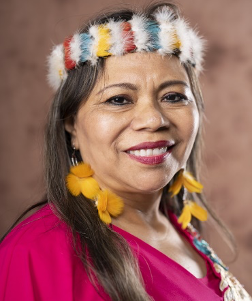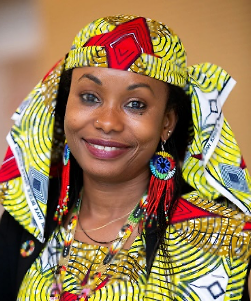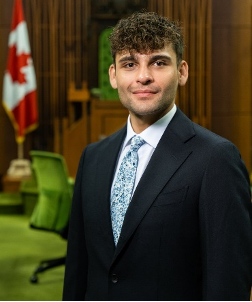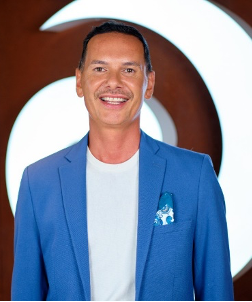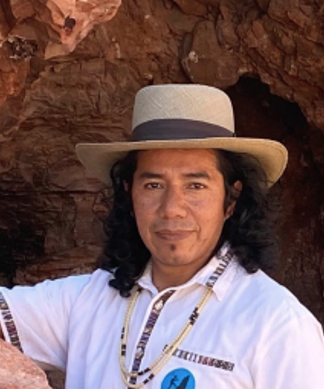DAVOS, Switzerland – While many of us are focused on the unfolding changes brought about by President Trump’s incoming administration including the withdrawal of the USA from the global Paris climate accord, Indigenous leaders are attending the World Economic Forum (WEF) at Davos raising the profile of Indigenous communities in facilitating a transition to a green economy.
The WEF began on January 20, 2025, marking the annual gathering in Davos, Switzerland, where global leaders from politics, business, academia, civil society, and media convene to address critical global challenges. The forum focuses on fostering dialogue and collaboration on pressing topics such as climate change, technological innovation, economic inequality, and geopolitical tensions. Through panels, workshops, and discussions, participants share insights and launch initiatives aimed at creating sustainable and equitable solutions. The event also serves as a platform for networking and collaboration among influential leaders. Despite its renowned agenda-setting influence, the WEF has faced criticism for being elitist and lacking inclusivity.
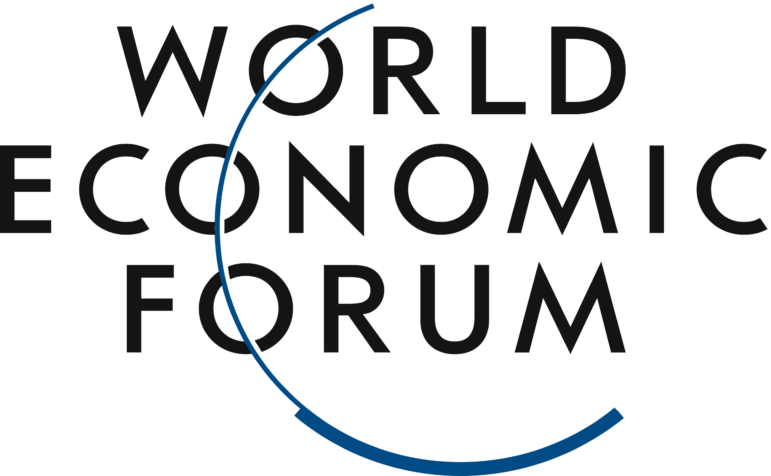
This year, Indigenous leaders are playing a more prominent role in the discussions, following a significant agreement on how “green” transitions impact Indigenous communities.
In October 2024, nearly 100 Indigenous leaders from the seven socio-cultural regions of the world reached a unanimous agreement on defining a Just Transition with respect to impacted or potentially impacted Indigenous Peoples. This agreement underscores the importance of ensuring that transitions to clean or green energy respect Indigenous rights and well-being. The resulting document outlines 11 principles that corporate and state actors must adhere to when designing and implementing projects under the banner of sustainable development. The document emphasizes that for Indigenous Peoples, a Just Transition means exercising territorial governance according to their traditions and ways of life.
“Activities proposed or carried out on our lands, ice, waters, and territories in the name of just transition, green economy, green/clean energy, or emissions reduction, without obtaining our free, prior, and informed consent, or which threaten our sacred places, cultural practices, food sources, and ecosystems, or otherwise violate our inherent rights, are not a just transition,” the document asserts. These principles emerged from the Indigenous Just Transition Summit, chaired by Rodion Sulyandziga, who highlighted the growing harm caused by so-called green or clean energy projects.
Sulyandziga noted that the Summit’s outcomes document provides a framework for ensuring a just, sustainable, and inclusive economy that respects Indigenous rights.
The 11 Principles of a Just Transition
- Right to Life: Protecting the physical and spiritual integrity of Indigenous Peoples to guarantee their present and future existence.
- Right to Self-Determination and Sovereignty: Recognizing and fully implementing Indigenous Peoples’ inherent rights, including equitable benefit-sharing and adherence to the United Nations Declaration on the Rights of Indigenous Peoples (UNDRIP).
- Decolonization: Rejecting the Doctrine of Discovery and combating the ongoing impacts of colonial and extractive practices.
- Reparations, Land Back, and Restoration: Ensuring the return, recognition, and restoration of Indigenous lands, territories, and waters.
- Respect for Ways of Life: Guaranteeing food sovereignty, respect for Indigenous knowledge systems, and protection of cultural practices and biodiversity.
- Transparency and Accountability: Involving Indigenous Peoples in active negotiations and ensuring their free, prior, and informed consent throughout project lifecycles.
- Historical Reparations: Addressing historical and ongoing damages through economic and non-economic reparations.
- Full Protection of Indigenous Peoples: Eliminating criminalization and violence against Indigenous human rights and environmental defenders.
- Recognition of Roles and Responsibilities: Valuing Indigenous Peoples’ stewardship of lands, waters, and ecosystems.
- Maintaining 1.5 Degrees: Supporting Indigenous-led climate projects to meet global temperature goals and mitigate climate change impacts.
- Rights-Based Approach to Supply Chains: Ensuring that supply chains for transition projects do not harm Indigenous lands or ecosystems.
Indigenous leaders have repeatedly stated their commitment to safeguarding critical resources and disseminating these principles through education, advocacy, and challenges to regulations and policies that ignore their rights. They also pledge to oppose forced evictions, displacements, and resource exploitation in the name of green transitions.
The role of Indigenous communities in climate action has been increasingly recognized on the global stage. At COP29 in Baku, Indigenous leaders emphasized the need for equitable climate funding and active inclusion of Indigenous Peoples in decision-making processes. Their advocacy extends to biodiversity, with the establishment of a permanent subsidiary body under the Kunming-Montreal Global Biodiversity Framework to integrate Indigenous knowledge and leadership into policy.
Indigenous Peoples’ contributions are vital to addressing the climate crisis. Although they account for only 6% of the global population, they protect approximately 50% of the world’s land and over a third of its biodiversity-rich areas. Their traditional practices consistently outperform global averages in preserving critical habitats and ecosystems. However, with 54% of energy transition mineral projects located on or near Indigenous lands, the push for renewable energy technologies must align with principles that uphold their rights and consent.
This year’s WEF meeting features Indigenous representatives from across the globe, including Hindou Oumarou Ibrahim, Fany Kuiru, Mindahi Crescencio Bastida Munoz, Mikaela Jade, Peter-Lucas Jones, and Justin Langan. These leaders bring expertise in areas such as biodiversity, Indigenous rights, technology, and cultural preservation. Their participation underscores the indispensable role of Indigenous communities in shaping policies and practices for a sustainable future.
Hindou Oumarou Ibrahim, a prominent advocate for integrating Indigenous knowledge into climate solutions, emphasizes that there can be no climate justice without Indigenous justice. Similarly, Fany Kuiru, representing the Amazon Basin and the highest-level Indigenous representative for the Amazon and leads one of the world’s largest Indigenous organizations, highlights the need to protect Indigenous lands from deforestation and climate change. Leaders like Mikaela Jade are advancing technology to preserve Indigenous languages and cultures, while Peter-Lucas Jones applies AI to safeguard Māori data and traditions.
With less than five years remaining to achieve the 2030 Sustainable Development Goals, stakeholders increasingly recognize the importance of Indigenous leadership in crafting equitable solutions, especially in public-private partnerships. From international negotiations to technological innovations, Indigenous communities must be at the forefront of driving a Just Transition. Their expertise in preserving ecosystems and advocating for climate justice is essential for creating a sustainable and inclusive future.
Despite the challenges, the inclusion of Indigenous voices at the WEF in Davos signifies progress toward addressing systemic inequities and amplifying the contributions of those who have long safeguarded the planet’s resources. As Sulyandziga aptly stated, “Without Indigenous knowledge, the quest for a green future is a journey without a map. And without Indigenous voices, even the greenest economy will run dry.”
The Wild Hunt is not responsible for links to external content.
To join a conversation on this post:
Visit our The Wild Hunt subreddit! Point your favorite browser to https://www.reddit.com/r/The_Wild_Hunt_News/, then click “JOIN”. Make sure to click the bell, too, to be notified of new articles posted to our subreddit.
